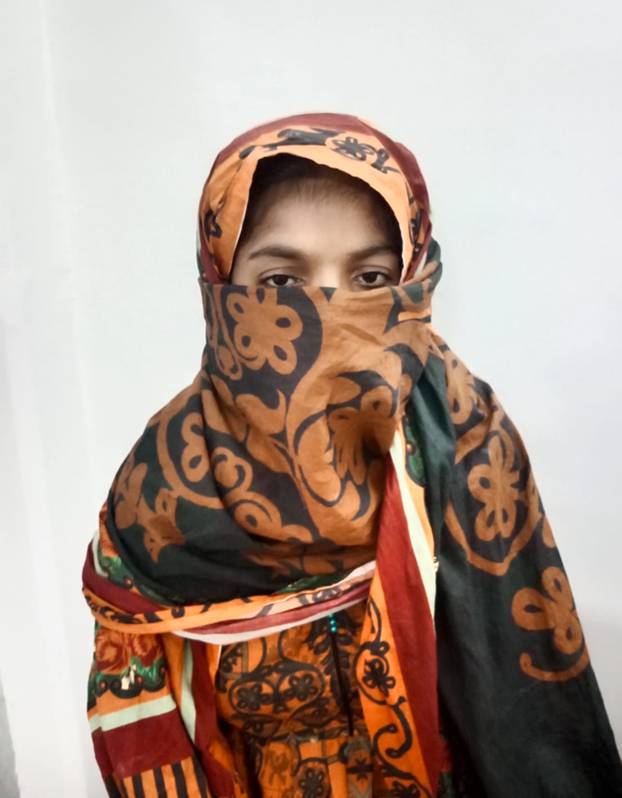
Motherhood is the most rewarding experience in the life of a woman. The woman’s entire journey of pregnancy entails new aspirations and hopes. But what if this blessing affects the mother’s health instead of giving excitement and delight? And what if the mother’s complications also affect neonatal health? On this International Mother’s Day, let’s share the story of a mother who had to face many challenges. This story is an eye opener for everyone who takes motherhood for granted.
Jamila, a young woman residing in the small village of Shidee Goth, Sindh province, is not only a survivor of maternal sepsis but also a relentless fighter of long-term challenges she faced throughout her life. Maternal sepsis, a condition scarcely known among women in her community, struck Jamila unexpectedly soon after she was discharged from the hospital following the birth of her second daughter.
Sepsis is a life-threatening medical condition caused by viral, bacterial, or fungal infections. Despite affecting a significant number of people, it remains largely unknown in many communities, especially rural communities of developing countries. It occurs when the body's response to infection becomes overwhelming, damaging important body organs and potentially leading to serious complications and death. Common symptoms include fever, rapid heartbeat, and confusion. In pregnancy and the postpartum period (42 days after childbirth), women may be more susceptible to rapid deterioration of illness following infection and are highly at risk of developing maternal sepsis. Jamila too, became a victim of this devastating condition at the time of the birth of her second daughter.
On the day of her newborn’s "chahti," which a traditional celebration held on the 6th day after a child's birth, this joyous occasion turned into a harrowing ordeal for her and her newborn, testing their health, finances, and access to medical care.
Jamila recalls: "It was all fine since my delivery, about 6 days ago. We were celebrating my newborn daughter's Chahthi, and suddenly I fainted.”
Her family rushed Jamila to the nearby private clinic, where they were informed that her blood pressure was alarmingly low, and she was running a high-grade temperature. The doctor prescribed medications that came with a heavy price tag, far beyond what they could afford. Dissatisfied with the medical care and financial costs, they decided to go to a tertiary care public hospital, where she hoped to deliver her baby, hoping for better and free-of-charge care.
However, upon arrival at the emergency ward, the doctor paid no heed to her concerns or alarming health symptoms and declared that everything was normal. While she was waiting for a specialist clinician, Jamila’s health condition kept worsening. She experienced yet another frightening episode of unconsciousness, which lasted for several hours.
Her husband, desperate for help, rushed her to the general emergency room at the same tertiary care hospital. However, even there, they had to face a lack of attention from the medical staff until her husband called upon a doctor he knew personally, who then intervened and arranged for her to receive urgent treatment.
Throughout this ordeal, the couple endured the financial burden of traveling back and forth to their village, struggling to arrange funds, and leaving their young toddler behind. The expenses for transportation, diagnostic tests, neonatal admission to the intensive care unit, and uncertainty about the circumstances, added immense stress and challenges to their existing situation. Jamila was finally admitted to the hospital and given antibiotic treatment. Her newborn was also admitted to the neonatal intensive care unit due to ill health.
“I would like to recommend all women to have antenatal visits during their pregnancy because we are not only responsible for our own but also another life that’s living inside us. I would also urge women and healthcare providers to never neglect or ignore any abnormal sign or symptom.”
When asked about the history of her illness, she says: “When I visited a doctor at a district hospital during my 8th month of pregnancy, they informed me that I have a low white blood count, but I did not pay any attention to that as I physically felt well. At the time of delivery, when I revisited the hospital, they didn’t take my case and referred me to the tertiary care hospital because of my blood reports.”
This shows that Jamila’s problem was picked up by the doctor during her antenatal visit, but was not given enough attention, which caused the worsening of her disease with time. Jamila kept neglecting her condition to avoid adding a further burden on her family.

“Even though I was low on energy, I didn’t want to give attention to it because I couldn’t leave my job and had to earn and save money for my delivery.”
This lack of attention and avoidance cost her much and she ended up with maternal sepsis.
Early detection of infection and sepsis is of critical importance for timely treatment. For patients suffering from sepsis, every minute counts. Maternal immunity during pregnancy and the postpartum period is in a compromised state and it might explain the reason for the varied maternal response to infections. Jamila’s signs and symptoms were overlooked, and she developed sepsis which not only affected her health but also her newborn’s health.
When asked about her newborn’s health, she wells up with tears and expresses guilt: “She is in intensive care unit and is under observation, she has severe diarrhoea. I am unable to breastfeed her due to my health. Doctors have stopped her feed and are only giving her intravenous fluids.” Jamila was experiencing racing thoughts and was facing multiple challenges at the same time, including her ill health, her newborn’s hospitalisation, financial crisis, and her 2-year-old who was waiting for her mother and sister to come home.
Gradually, with frequent monitoring and her treatment, Jamila's health began to improve. She was regularly monitored for her vital signs. Her blood samples were routinely sent for laboratory investigations, and she was provided with medical treatment for maternal sepsis. Regarding her treatment and current health condition, she states:
“Doctors regularly check my blood pressure and temperature. I was given medications and drips. Now my fever has subsided, and I feel more energy from the time I was admitted to the hospital.”
Reflecting on her experience, she emphasises the importance of antenatal visits and routine checkups during pregnancy. She also highlights the need to listen to doctors and follow their guidance. As for her financial crisis, she feels that her desire to save money led her to neglect her health, foregoing regular checkups. Unfortunately, this decision proved costly, as the money saved in the short term was eclipsed by greater expenses due to untreated health issues later.
It is all a reminder that investing in one's well-being is essential for long-term financial stability. When asked what she would like to recommend to community women and the stakeholders, she says:
“I would like to recommend all women to have antenatal visits during their pregnancy because we are not only responsible for our own but also another life that’s living inside us. I would also urge women and healthcare providers to never neglect or ignore any abnormal sign or symptom.”
Jamila's story stands as a poignant reminder of the urgent need for community women’s awareness of this important and neglected health problem of maternal sepsis, which is the third leading cause of maternal deaths. This story also highlights social reform to ensure the well-being of underprivileged women and their families.

